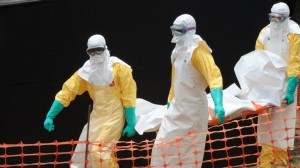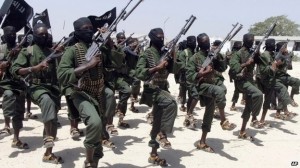By Ashley Repp
Impunity Watch News Reporter- Africa
WEST AFRICA- the Ebola virus continues to claim lives, yet governments are quiet in actively working to stop the spread
West Africa has been attempting to cope with an Ebola outbreak that has become out of control. This week, a 635 cases have been confirmed and nearly 400 have lost their lives to the virus. Ebola, a haemorrhagic fever, is one of the most contagious diseases and can spread quickly through contact with bodily fluids and perspiration. Without proper control and protocol when dealing with infected individuals, rampant spread of the illness will ensue. Nearly 90% of all who become infected will succumb to the disease; a bleak prognosis.
Doctors Without Borders has asserted that it is working at full capacity and simply cannot help more individuals as the virus continues to spread. More than sixty virus ‘hotspots’ have been identified, with Guinea being the hardest hit. The Doctors Without Borders (MSF) organization has warned that massive funding, resources, and cooperation are needed to get the outbreak under control, and urges the governments of the countries affected by the outbreak, like Guinea, Sierra Leone, Liberia, and Monrovia, to take a role in providing resources and establishing a plan for addressing the epidemic.
Some doctors have expressed outrage, asserting that this virus has gotten out of control because government officials will not come to terms with the reality of the outbreak, and have ‘lied’ through their contentions that the outbreak is under control. A target of this critique has been Guinean president, Alpha Conde, who expressed, at a meeting with the World Health Organization, that the virus seemed to be under control. Other doctors have asserted that governments are not being forthright with information about the extent of the outbreak for fear that it will scare off potential investors. As a result, obtaining investors is coming at the cost of human life, which is inciting outrage.
If governments do not take a more present and visible role in coping with this outbreak, the epidemic could continue to escalate and claim more lives. Furthermore, the potential for more countries to have documented cases and outbreaks will become a very real reality. Citizens of the nations currently affected by the epidemic are paralyzed by fear, but many are unsure how to stop the spread of the disease, creating a difficult combination of panic and continued exposure. It is essential that information regarding the virus and how it is spread is disseminated by a reliable source. Until these loose ends can be tied, it is likely that the outbreak will continue to spread.
For more information please visit:
The New York Times- Ebola Deaths Rise as Outbreak Spreads- 26 June 2014
All Africa- West Africa: Ebola Virus Out of Control- Doctors Without Borders- 26 June 2014
All Africa- ‘Ebola Epidemic Requires Massive Deployment of Resources’ MSF- 23 June 2014
Relief Web- Medics Vent Anger at Government Inaction Over Ebola- 26 June 2014




